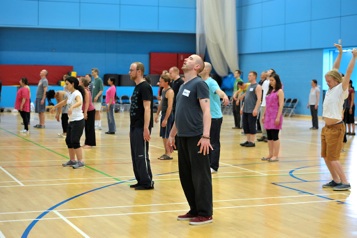WHY IS OUR METHODOLOGY SO AMAZING?

Chi flow
Question
Why is our methodology so amazing? Why do we achieve in one day what other people may take a few years to achieve?
-- Sifu Daniel Perez, Spain
Answer
Our students have amazing results in a very short time even when they do not perform the form of the exercise perfectly. There are many reasons for this amazement, but a major one is that our students operate at the mind and energy levels, whereas other people operate at the form level.
But before the other people can operate chi kung even at the form level, they need a few months, if not a year or two, to develop the chi kung skills to do so. Otherwise they only perform gentle physical exercise.
Even when the other people have chi kung skill, they do not realize it. Hence, sometimes they perform chi kung, and sometimes they perform gentle physical exercise. They do not have the advantage of accumulated effect.
On the other hand, we teach our students chi kung skills to operate at the mind level and the energy level in their very first lesson. We also emphasize the importance of skills. Our students have the advantage of accumulated effect.
Other people may not understand what we are talking about here, and some would angrily accuse us of boasting. But what we say is true. For example, our students in my regional or intensive courses enjoy a chi flow on the very first day of their learning from us. Other people would be lucky if they have a chi flow after a year, Most of them may not know what a chi flow is; they only know chi kung forms. And chi flow is the essence of chi kung.
Students at my regional or intensive courses experience internal force on the very first day they learn from me. Other people would be lucky if they experience internal force after a year of training. Many of them do not even believe in internal force because they never experience it no matter for how long they train.
LINKS
